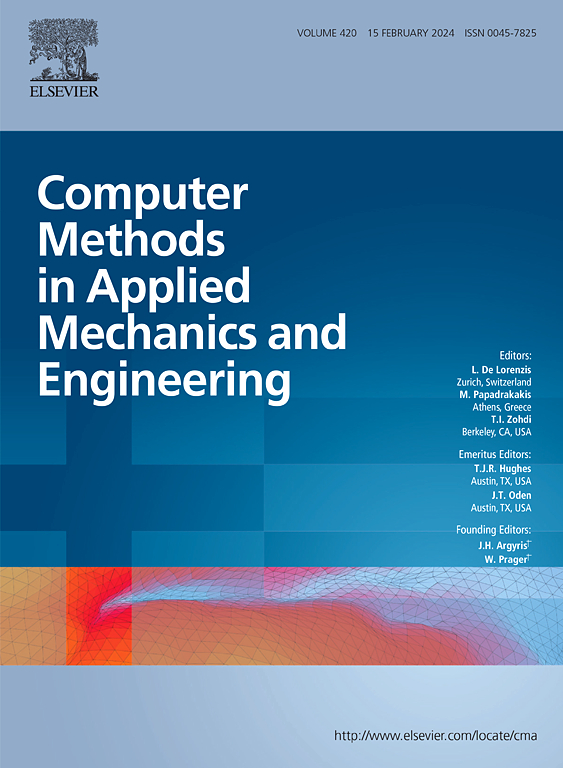Multi-Objective Loss Balancing for Physics-Informed Deep Learning
IF 6.9
1区 工程技术
Q1 ENGINEERING, MULTIDISCIPLINARY
Computer Methods in Applied Mechanics and Engineering
Pub Date : 2025-03-16
DOI:10.1016/j.cma.2025.117914
引用次数: 0
Abstract
Physics-Informed Neural Networks (PINN) are deep learning algorithms that leverage physical laws by including partial differential equations together with a respective set of boundary and initial conditions as penalty terms in their loss function. In this work, we observe the significant role of correctly weighting the combination of multiple competitive loss functions for training PINNs effectively. To this end, we implement and evaluate different methods aiming at balancing the contributions of multiple terms of the PINN’s loss function and their gradients. After reviewing three existing loss scaling approaches (Learning Rate Annealing, GradNorm and SoftAdapt), we propose a novel self-adaptive loss balancing scheme for PINNs named ReLoBRaLo (Relative Loss Balancing with Random Lookback). We extensively evaluate the performance of the aforementioned balancing schemes by solving both forward as well as inverse problems on three benchmark PDEs for PINNs: Burgers’ equation, Kirchhoff’s plate bending equation, Helmholtz’s equation and over 20 PDEs from the ”PINNacle” collection. The results show that ReLoBRaLo is able to consistently outperform the baseline of existing scaling methods in terms of accuracy while also inducing significantly less computational overhead for a variety of PDE classes.
基于物理信息的深度学习多目标损失平衡
物理信息神经网络(PINN)是一种深度学习算法,它通过在损失函数中包含偏微分方程以及相应的一组边界和初始条件作为惩罚项来利用物理定律。在这项工作中,我们观察到正确加权多个竞争损失函数的组合对于有效训练pin的重要作用。为此,我们实现并评估了不同的方法,旨在平衡PINN的损失函数及其梯度的多个项的贡献。在回顾了现有的三种损失缩放方法(学习率退火、GradNorm和SoftAdapt)之后,我们提出了一种新的pinn自适应损失平衡方案,名为ReLoBRaLo(随机回看的相对损失平衡)。我们通过解决pinn的三个基准PDEs的正解和逆问题来广泛评估上述平衡方案的性能:Burgers方程,Kirchhoff板弯曲方程,Helmholtz方程和来自“PINNacle”系列的20多个PDEs。结果表明,ReLoBRaLo能够在准确性方面始终优于现有缩放方法的基线,同时还显著减少了各种PDE类的计算开销。
本文章由计算机程序翻译,如有差异,请以英文原文为准。
求助全文
约1分钟内获得全文
求助全文
来源期刊
CiteScore
12.70
自引率
15.30%
发文量
719
审稿时长
44 days
期刊介绍:
Computer Methods in Applied Mechanics and Engineering stands as a cornerstone in the realm of computational science and engineering. With a history spanning over five decades, the journal has been a key platform for disseminating papers on advanced mathematical modeling and numerical solutions. Interdisciplinary in nature, these contributions encompass mechanics, mathematics, computer science, and various scientific disciplines. The journal welcomes a broad range of computational methods addressing the simulation, analysis, and design of complex physical problems, making it a vital resource for researchers in the field.

 求助内容:
求助内容: 应助结果提醒方式:
应助结果提醒方式:


